
The Majestic Tarn Gorges: A Natural Wonder in France
The Tarn Gorges, located in the south of France, is a stunning natural attraction that captivates every visitor with its breathtaking beauty. Carved by the Tarn River over millions of years, these gorges stretch for about 50 kilometers, offering dramatic landscapes of sheer limestone cliffs, lush greenery, and crystal-clear waters. This destination is a paradise for nature lovers, adventure seekers, and those looking to escape the hustle and bustle of city life. Exploring the Tarn Gorges can be an unforgettable experience, whether you choose to hike along its scenic trails, paddle through the tranquil waters in a canoe, or simply enjoy a leisurely drive along the winding roads that hug the cliffs. The area is also rich in history and culture, with charming villages like Sainte-Enimie, La Malène, and Le Rozier dotting the landscape. These villages offer a glimpse into the traditional way of life in this region, with their stone houses, narrow streets, and local markets. Wildlife enthusiasts will be thrilled by the diverse flora and fauna in the Tarn Gorges. Keep an eye out for golden eagles, peregrine falcons, and the elusive European otter. The region is also home to unique plant species that thrive in the calcareous soil and mild climate. Whether you're picnicking by the river, exploring ancient caves, or simply soaking in the panoramic views from a high vantage point, the Tarn Gorges promises a serene and rejuvenating experience.
Local tips in Tarn Gorges
- Visit in spring or autumn to avoid the summer crowds and enjoy mild weather.
- Pack comfortable walking shoes and bring a camera to capture the stunning views.
- Try the local cuisine in the villages; dishes often feature regional ingredients like chestnuts and wild mushrooms.
- Consider renting a canoe or kayak for a unique perspective of the gorges from the water.
- Check out the local markets for artisanal products and souvenirs.
The Majestic Tarn Gorges: A Natural Wonder in France
The Tarn Gorges, located in the south of France, is a stunning natural attraction that captivates every visitor with its breathtaking beauty. Carved by the Tarn River over millions of years, these gorges stretch for about 50 kilometers, offering dramatic landscapes of sheer limestone cliffs, lush greenery, and crystal-clear waters. This destination is a paradise for nature lovers, adventure seekers, and those looking to escape the hustle and bustle of city life. Exploring the Tarn Gorges can be an unforgettable experience, whether you choose to hike along its scenic trails, paddle through the tranquil waters in a canoe, or simply enjoy a leisurely drive along the winding roads that hug the cliffs. The area is also rich in history and culture, with charming villages like Sainte-Enimie, La Malène, and Le Rozier dotting the landscape. These villages offer a glimpse into the traditional way of life in this region, with their stone houses, narrow streets, and local markets. Wildlife enthusiasts will be thrilled by the diverse flora and fauna in the Tarn Gorges. Keep an eye out for golden eagles, peregrine falcons, and the elusive European otter. The region is also home to unique plant species that thrive in the calcareous soil and mild climate. Whether you're picnicking by the river, exploring ancient caves, or simply soaking in the panoramic views from a high vantage point, the Tarn Gorges promises a serene and rejuvenating experience.
When is the best time to go to Tarn Gorges?
Iconic landmarks you can’t miss
Arc de Triomphe
Discover the Arc de Triomphe in Montpellier, a stunning historical landmark that showcases the city's rich heritage and serves as a gateway to its vibrant culture.
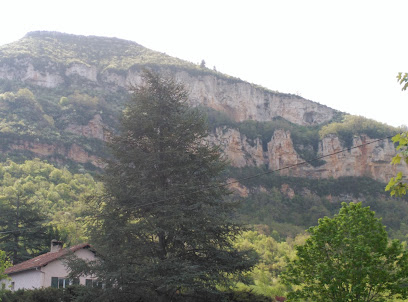
Parc naturel régional des Grands Causses
Discover the breathtaking landscapes and rich biodiversity of the Parc Naturel Régional des Grands Causses in southern France, a paradise for nature lovers.
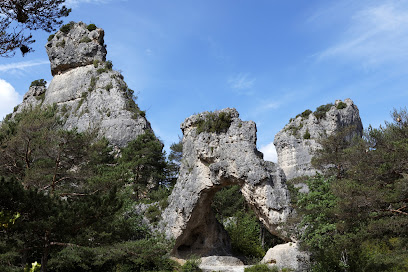
Verdon Gorge
Discover the stunning Verdon Gorge, a natural wonder in Provence, France, known for its dramatic cliffs, turquoise waters, and thrilling outdoor adventures.
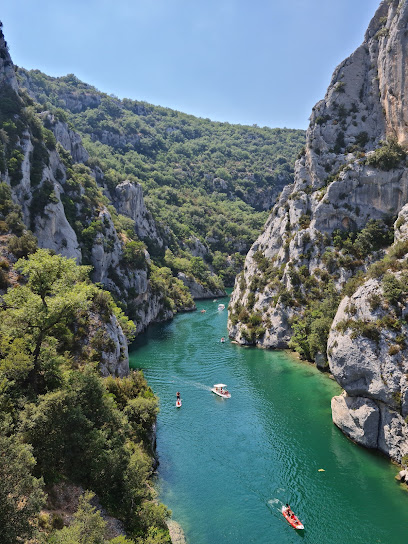
Viaduc de Millau
Experience the stunning Viaduc de Millau, a breathtaking architectural wonder that seamlessly blends engineering brilliance with nature's beauty in southern France.
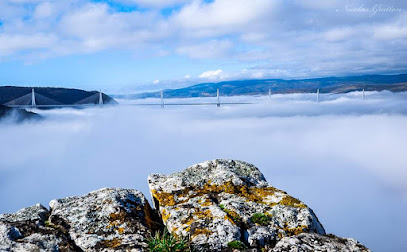
Sublime Point
Explore Sublime Point, a breathtaking observation deck and hiking area in Gorges du Tarn, showcasing nature's beauty and stunning landscapes.
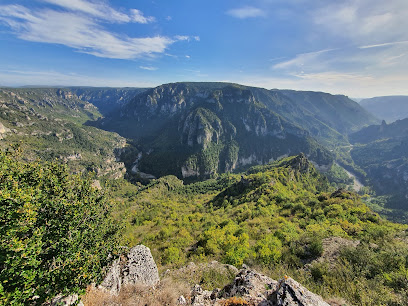
Najac Castle
Najac Castle: A stunning medieval fortress offering breathtaking views and a deep dive into France's rich cultural heritage.
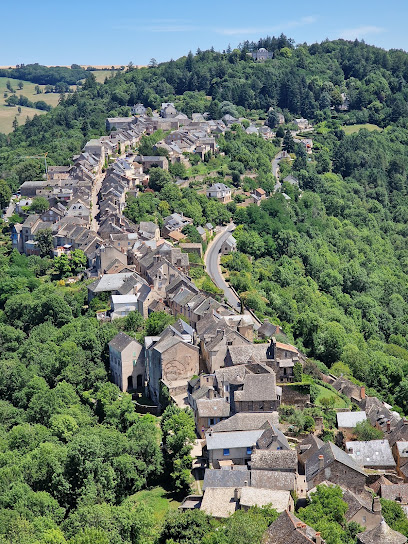
Abîme de Bramabiau
Discover the awe-inspiring beauty of Abîme de Bramabiau, a stunning cave system nestled in the Cévennes, perfect for nature lovers and adventure seekers.
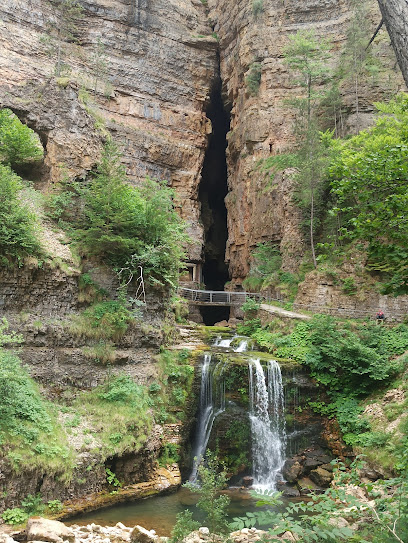
The Boatmen of the Gorges du Tarn
Discover the breathtaking Gorges du Tarn with expert local boatmen, offering scenic tours through stunning landscapes and rich history.
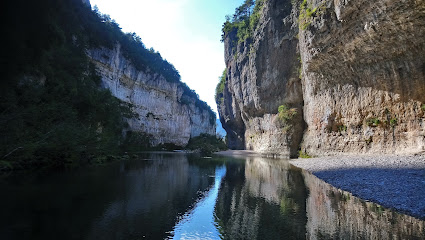
Gorges Du Verdon
Discover the breathtaking beauty of Gorges du Verdon, a paradise for adventurers and nature lovers in southeastern France.
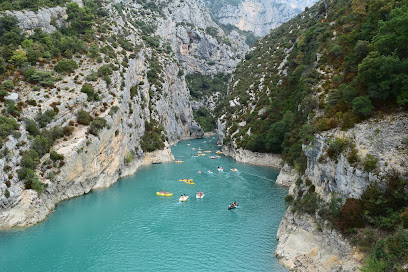
Pas de Soucy
Explore the stunning natural landscapes and thrilling outdoor adventures at Pas de Soucy, a gem in the heart of Causses and Gorges.
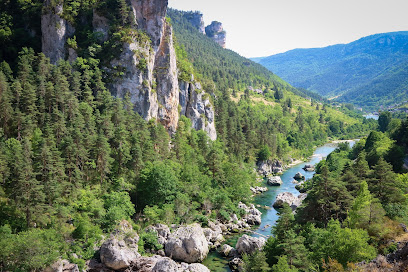
Le Moulin de Cénaret
Explore the enchanting Le Moulin de Cénaret, where nature meets craftsmanship in the stunning Gorges du Tarn.
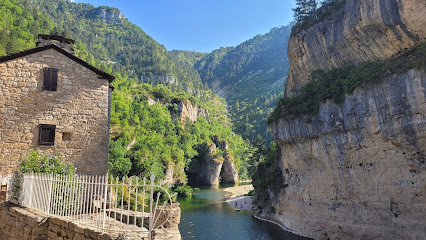
Les Gorges du Tarn .fr
Explore the breathtaking beauty of Les Gorges du Tarn, a stunning natural wonder in southern France, perfect for outdoor adventures and relaxation.
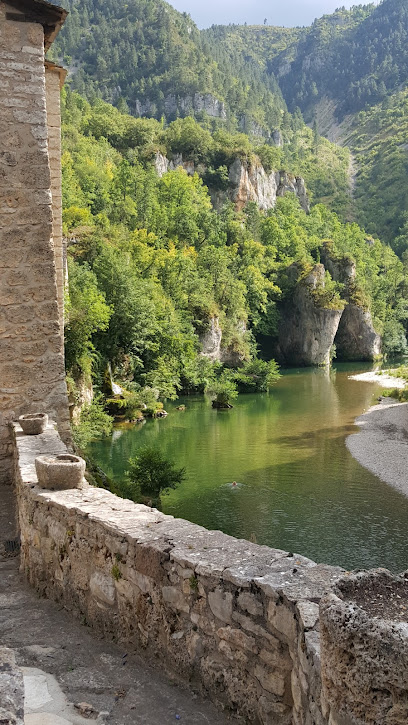
Gorges du Tarn
Discover the breathtaking beauty of Gorges du Tarn, a stunning ravine in France perfect for outdoor adventures and serene nature escapes.
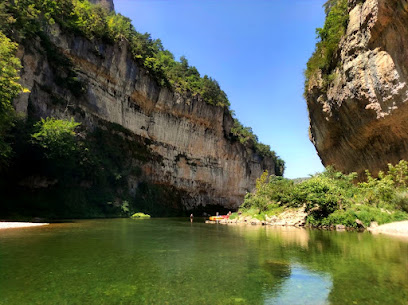
Point sublime de Saint-Jean des Balmes, 12720 Veyreau
Discover the stunning views at Point Sublime in Veyreau, a scenic spot that showcases the natural beauty of France's breathtaking landscapes.
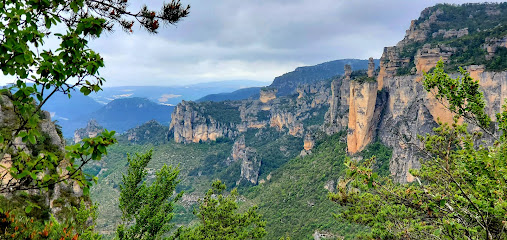
Le Tarnon
Explore the serene beauty of Le Tarnon in Cans-et-Cévennes, a hidden gem in France perfect for nature lovers and tranquil escapes.
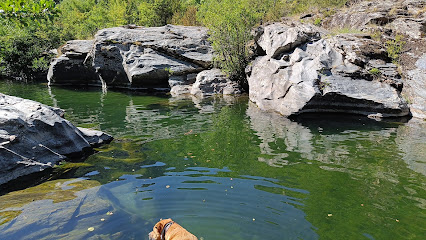
Unmissable attractions to see
Parc naturel régional des Grands Causses
Explore the Parc Naturel Régional des Grands Causses: a French UNESCO site with stunning landscapes, outdoor adventures, and rich cultural heritage.
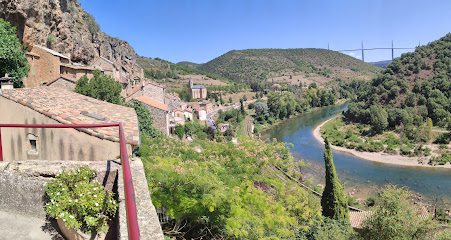
Viaduc de Millau
Experience the breathtaking Viaduc de Millau: A marvel of engineering offering stunning views of the Tarn River valley in Southern France.
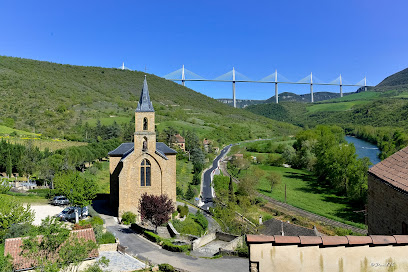
Aven Armand
Explore Aven Armand: Discover a breathtaking subterranean world of stalagmites in the heart of France's Cévennes National Park.
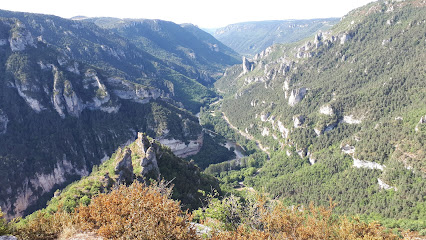
Abîme de Bramabiau
Explore the subterranean world where the 'Bonheur' river disappears and reappears with a thunderous roar in the heart of the Cévennes National Park.
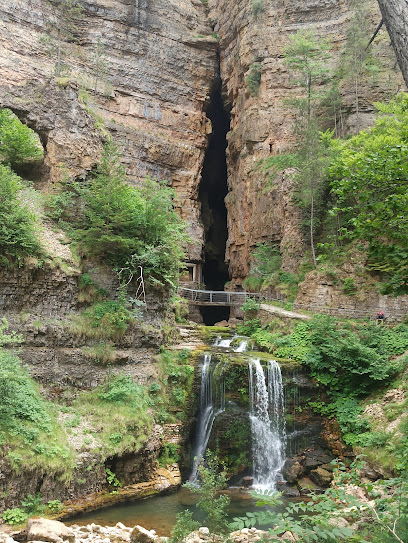
Chaos de Montpellier-le-Vieux
Discover a breathtaking natural wonder: explore Europe's largest rock chaos with stunning rock formations and panoramic views.
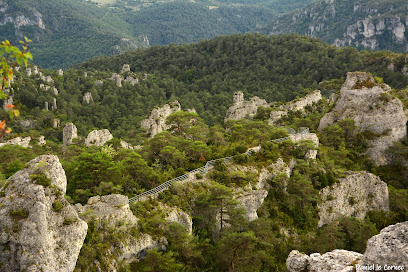
House of the Vultures
Discover the majestic world of vultures at the House of the Vultures in Le Truel, France. A unique museum, observation point, and conservation center.
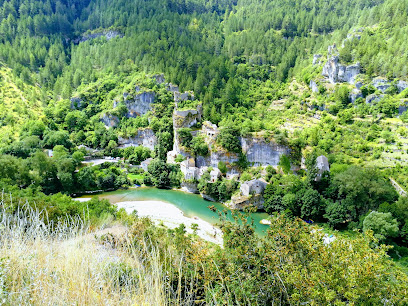
Castle Peyrelade
Explore Château de Peyrelade, a medieval fortress offering panoramic views of the Tarn Valley and a glimpse into the region's rich history.
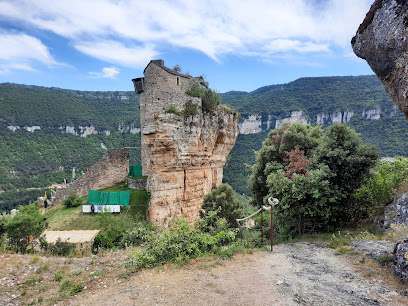
Cascade de saint Chély
A picturesque waterfall cascading into the Tarn River, surrounded by the stunning beauty and historical charm of Saint-Chély-du-Tarn.
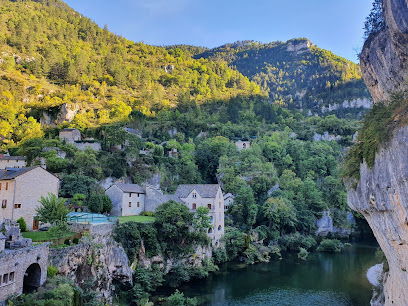
Cascade de Creissels
Discover the enchanting beauty of Cascade de Creissels, a natural haven with stunning waterfalls and scenic hiking trails near Millau, France.
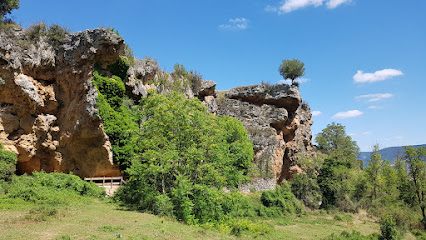
Gorges du Tarn
Explore the majestic Gorges du Tarn: Europe's deepest canyon, offering stunning views, outdoor adventures, and picturesque villages.
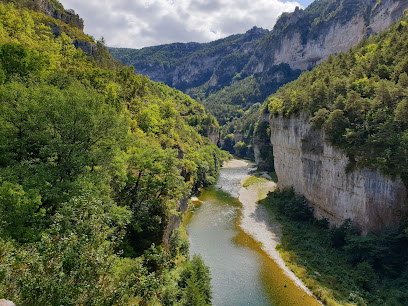
Cascade du Déroc
Discover Cascade du Déroc: A stunning waterfall near Nasbinals, France, offering breathtaking views and a glimpse into the Aubrac region's natural beauty.
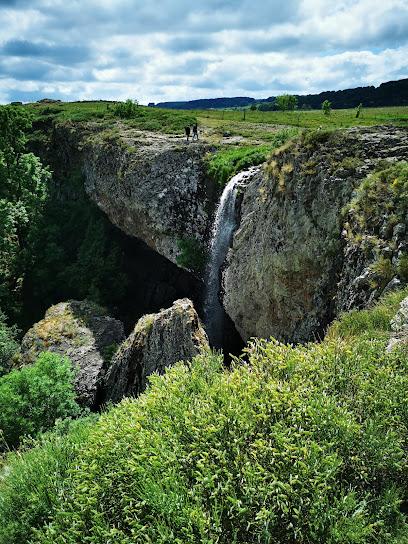
Pas de Soucy
Witness the spectacle of the Tarn River disappearing beneath a dramatic rockslide in the heart of the Gorges du Tarn.
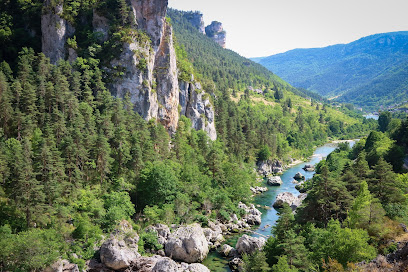
Acroparc Mas
Experience thrilling treetop adventures and water fun for all ages at Acroparc Mas in the heart of the Gorges du Tarn near Millau!
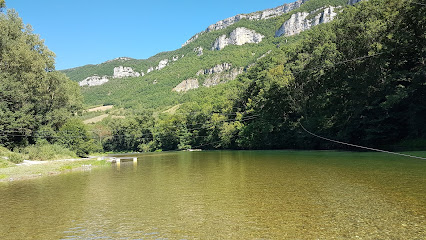
Le Moulin de Cénaret
Discover local crafts and the charm of a historic mill in the heart of the Gorges du Tarn at Le Moulin de Cénaret.
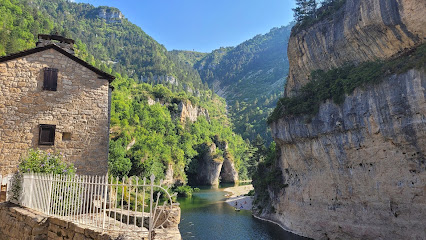
Utopix
Discover a whimsical world of art and playful sculptures at Utopix in the heart of the Gorges du Tarn Causses, a unique family experience.
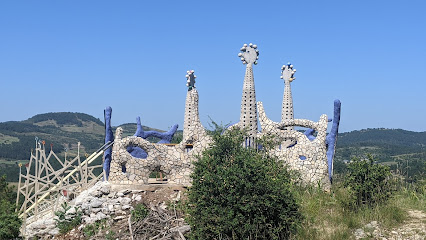
Essential places to dine
Restaurant des Douzes
Experience authentic French cuisine at Restaurant des Douzes, where family-friendly hospitality meets culinary excellence in the heart of Douzes Les.
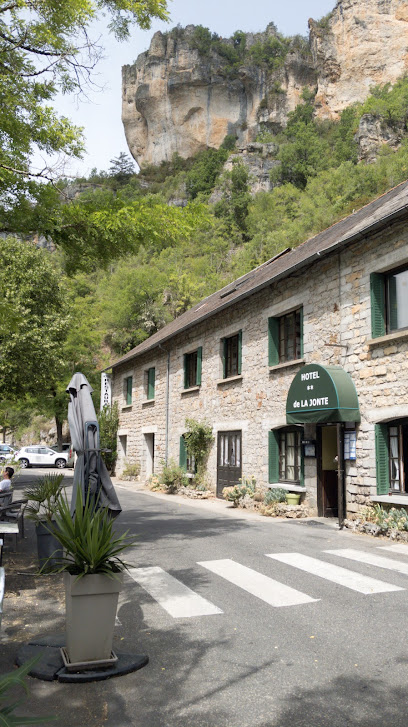
Hôtel de la Muse
Experience serene comfort and exquisite French cuisine at Hôtel de la Muse in Mostuéjouls - your ideal getaway in nature's embrace.

Auberge du Moulin
Experience exquisite French cuisine and cozy lodging at Auberge du Moulin in Gorges du Tarn - where nature meets culinary artistry.
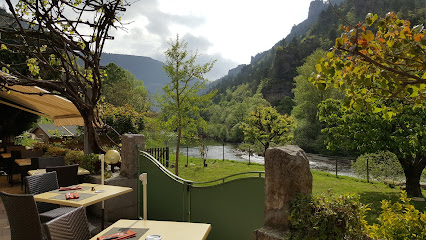
Logis Auberge de la Cascade
Discover exquisite French cuisine and cozy accommodations at Logis Auberge de la Cascade in Gorges du Tarn - a true haven for food lovers.

Bar-Restaurant des Gorges du Tarn
Savor authentic French cuisine amidst breathtaking views at Bar-Restaurant des Gorges du Tarn—your culinary haven in nature's paradise.
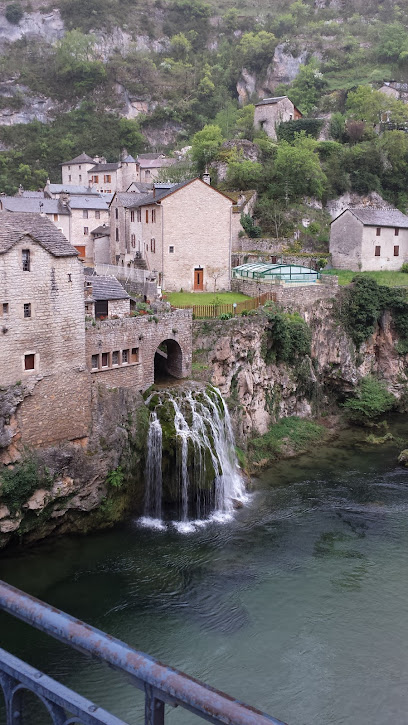
Chez Alex | Chambres d'hôtes Gorges du Tarn | Gîte Étape | Hébergement | Restaurant | Les Vignes
Discover authentic French cuisine and warm hospitality at Chez Alex in Gorges du Tarn – your gateway to nature's beauty.
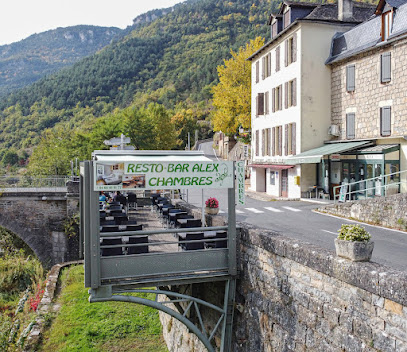
Castle of La Malène
Discover exquisite dining and vibrant nightlife at the historic Castle of La Malène – where culinary delight meets captivating ambiance.
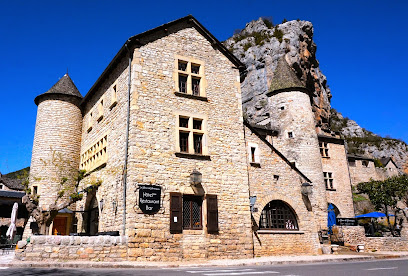
L'Auberge du Terroir
Discover authentic French and Mediterranean cuisine amidst breathtaking landscapes at L'Auberge du Terroir in Mostuéjouls.
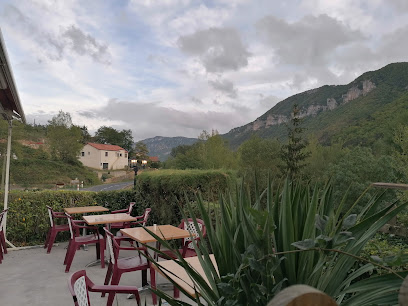
Auberge de Peyreleau
Experience authentic French cuisine in the heart of Peyreleau at Auberge de Peyreleau - where tradition meets taste.
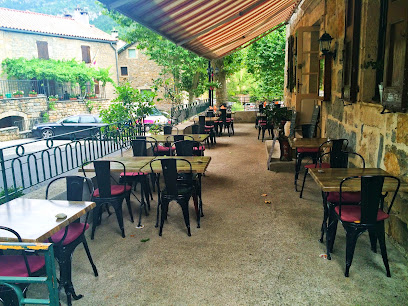
Hotel Le Parisien
Experience the charm of La Tieule at Hotel Le Parisien - where authentic French cuisine meets comfortable hospitality.
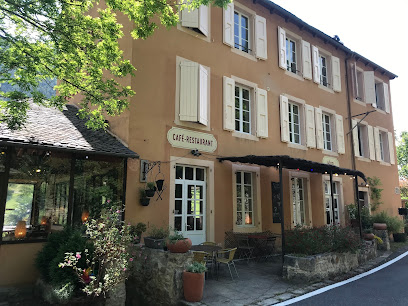
La Table de Lisa
Experience authentic French and Mediterranean cuisine at La Table de Lisa in scenic La Malène – where flavor meets breathtaking views.
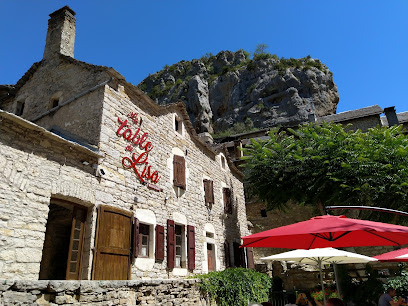
Restaurant L'auberge de Maubert
Experience the essence of French cuisine at Restaurant L'auberge de Maubert in Millau - where every dish tells a story.
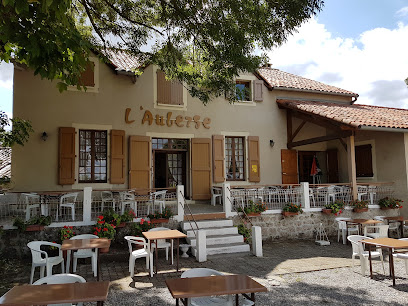
Le Sahuc
Discover Le Sahuc: Experience exquisite Haute French cuisine in the heart of Rivière-sur-Tarn with seasonal dishes and fine wines.
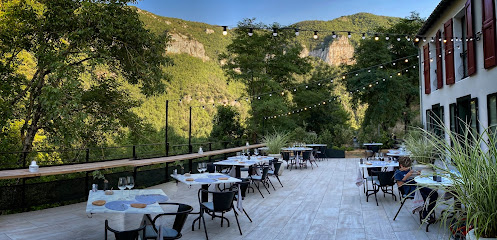
LA GRANGE TEMPLIERE
Experience authentic French cuisine at La Grange Templiere in Peyreleau—where rustic charm meets culinary excellence.
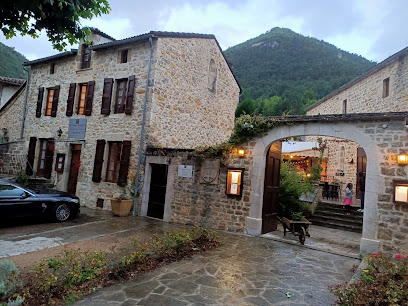
La calquiere
Experience authentic French cuisine at La Calquière in Mostuéjouls—where culinary tradition meets warm hospitality.
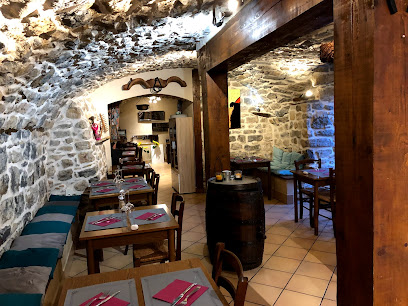
Markets, malls and hidden boutiques
Sublime Point
Experience the breathtaking views and exhilarating hikes at Sublime Point, a premier scenic spot in the heart of Gorges du Tarn, France.
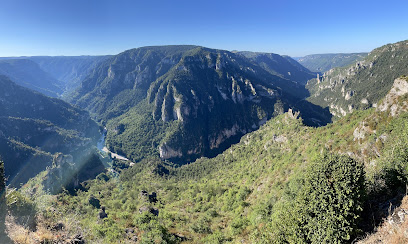
Gorges du Tarn
Discover the breathtaking beauty and adventure of Gorges du Tarn, a stunning ravine in southern France, perfect for outdoor enthusiasts and nature lovers.
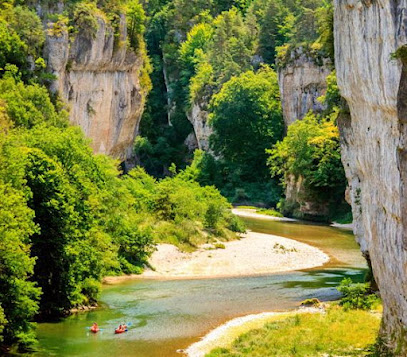
La Cazelle : Canoë Gorges du Tarn
Experience the thrill of canoeing and kayaking in the breathtaking Gorges du Tarn at La Cazelle, where adventure meets stunning natural beauty.
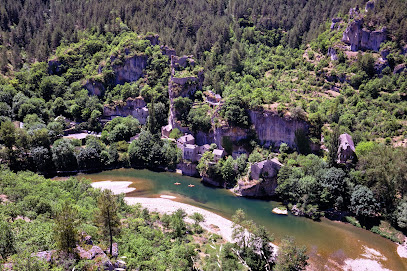
La Sauvagine
Explore the artisanal delights of La Sauvagine, a charming bakery in Massegros Causses Gorges, offering homemade jams and fresh baked goods.
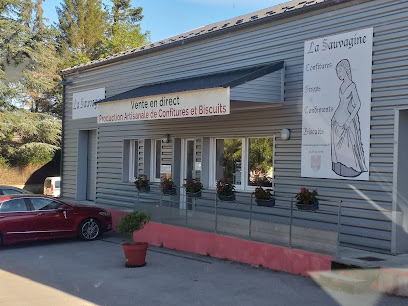
Maison Fabre Millau
Explore Maison Fabre in Millau for exquisite fashion accessories that reflect France's rich artisan heritage and timeless style.
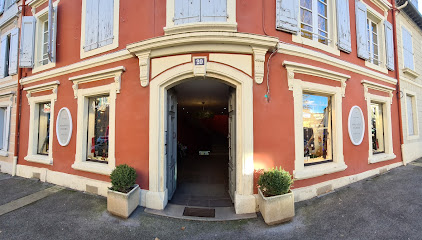
Vival supérette
Discover the flavors of the French countryside at Vival Supérette in Massegros, a delightful grocery store brimming with local produce and gourmet treats.
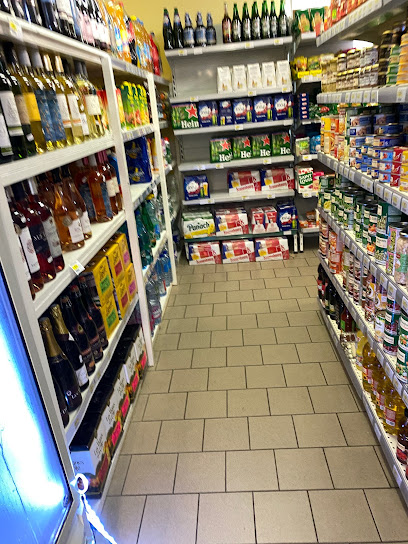
Epicerie des Gorges du Tarn
Experience local flavors and convenience at Epicerie des Gorges du Tarn, your gateway to the stunning Gorges du Tarn region.
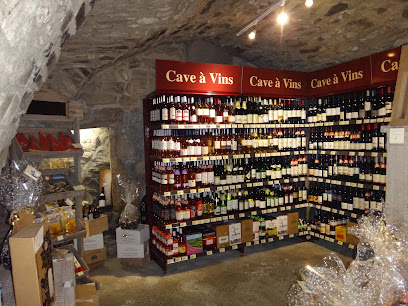
DALERY Maroquinier
Explore DALERY Maroquinier in Millau for exquisite leather goods, bags, and fashion accessories that embody French craftsmanship.
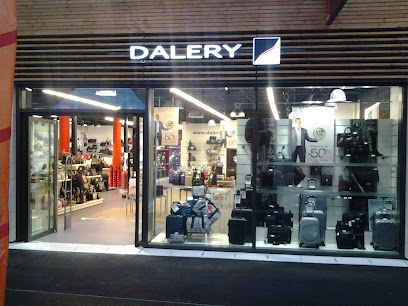
Maison Viala boyne
Discover the authentic taste of Rivière-sur-Tarn at Maison Viala Boyne, where local meats and artisanal charcuterie await your palate.
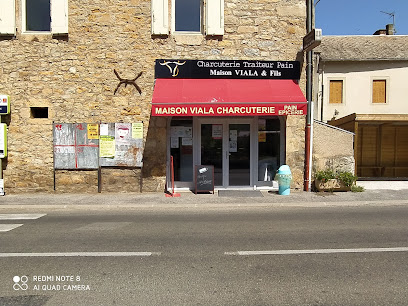
Épicerie
Explore Épicerie in Massegros for an authentic taste of local French culture and cuisine with fresh produce and artisanal delights.
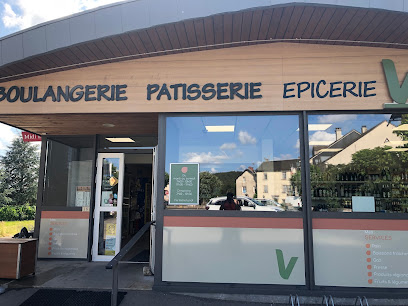
Benezet Henri
Explore Benezet Henri in Aguessac, a charming antique store filled with unique treasures that tell stories of the past.
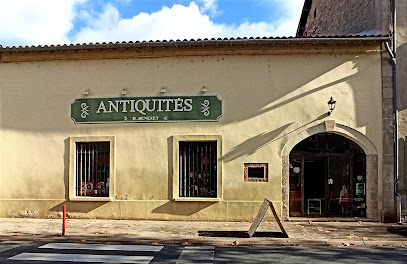
La Rue Française
Discover unique souvenirs and local artisan goods at La Rue Française, the charming gift shop in Millau, France.
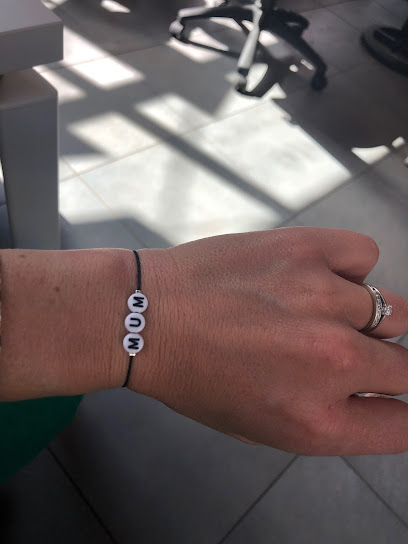
Temps Libre
Explore unique gifts and local delicacies at Temps Libre, your go-to gift shop in the heart of Millau, France.
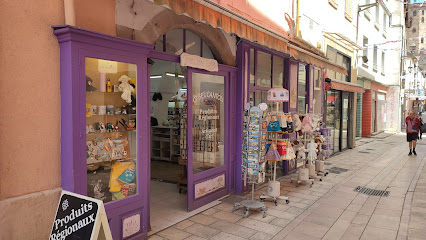
Aux Saveurs Cévenoles
Discover the flavors of the Cévennes at Aux Saveurs Cévenoles, Meyrueis' premier natural goods store for organic delights and local specialties.
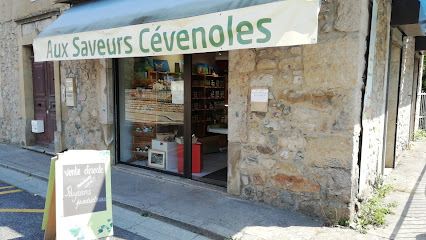
Decorelie ★ Décoration, Mobilier, Mode
Explore Decorelie for unique home goods, festive decorations, and stylish accessories, making it a perfect stop for tourists seeking local charm.

Essential bars & hidden hideouts
Capluc Kfé
Experience the perfect blend of relaxation and culinary delight at Capluc Kfé, a charming bar and restaurant in the heart of Le Rozier.
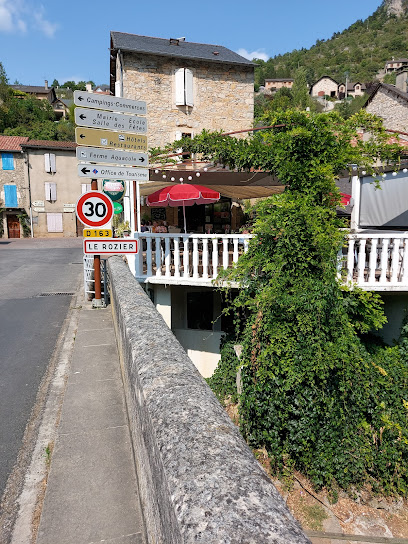
Hôtel de la Muse
Experience the tranquility of Mostuéjouls at Hôtel de la Muse, where comfort meets exquisite French dining amidst breathtaking landscapes.

Bar-Restaurant des Gorges du Tarn
Discover the flavors of France at Bar-Restaurant des Gorges du Tarn, where culinary delights meet breathtaking natural beauty.
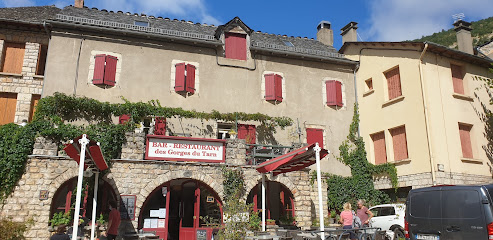
Chez Alex | Chambres d'hôtes Gorges du Tarn | Gîte Étape | Hébergement | Restaurant | Les Vignes
Experience the best of Gorges du Tarn at Chez Alex, where comfort meets culinary delight in a stunning natural setting.
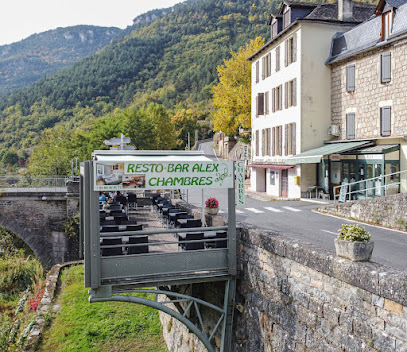
Le Saltadou : Panorama du cirque de Saint-Chély-du-Tarn
Experience the stunning panorama of Saint-Chély-du-Tarn at Le Saltadou, where breathtaking views meet local culinary delights in a serene setting.
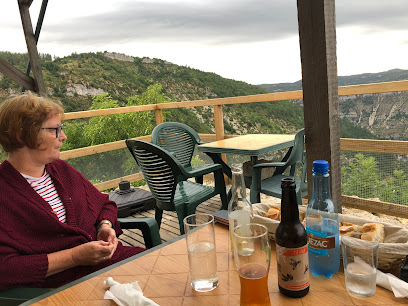
Auberge de Peyreleau
Experience authentic French cuisine and local wines at Auberge de Peyreleau, a charming bar and restaurant nestled in the heart of Peyreleau, France.
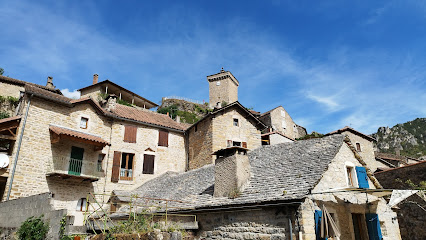
l'Abracada bar
Experience the charm of Gorges du Tarn Causses at l'Abracada Bar, where exquisite wines and delightful tapas create the perfect escape.
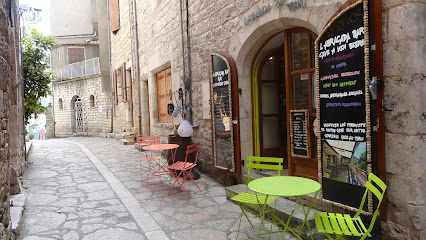
Chez Léon
Discover the vibrant atmosphere of Chez Léon, a brewery and cocktail bar offering exquisite local brews and a delightful culinary experience in Gorges du Tarn.
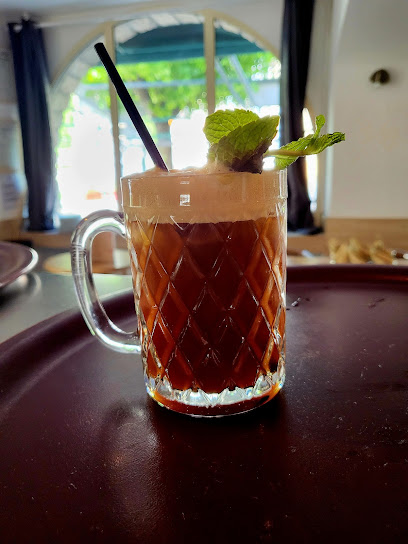
Aux Cinq Arches
Experience a culinary journey at Aux Cinq Arches, where exquisite tapas meet stunning views in the heart of the Gorges du Tarn.
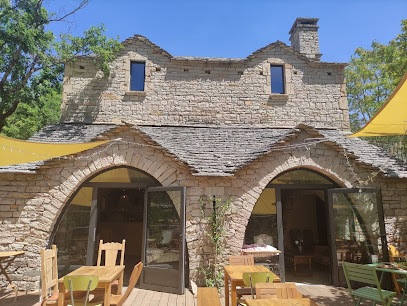
Le Sahuc
Discover the exquisite flavors of Haute French cuisine at Le Sahuc in Rivière-sur-Tarn, where every dish is a masterpiece.
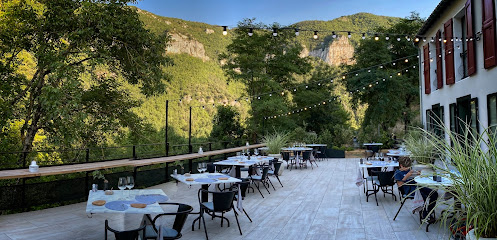
LA GRANGE TEMPLIERE
Discover the exquisite flavors of French cuisine in the charming village of Peyreleau at La Grange Templiere.

L' Aurore Pub
Experience the warmth and charm of L' Aurore Pub in Rivière-sur-Tarn, where local brews and hearty dishes await in a cozy atmosphere.
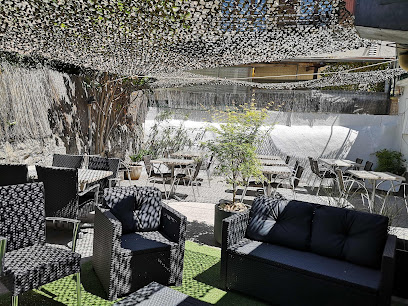
Restaurant-Bar Daily New's
Experience the essence of Rivière-sur-Tarn at Restaurant-Bar Daily New's, where local flavors meet a warm and inviting atmosphere.
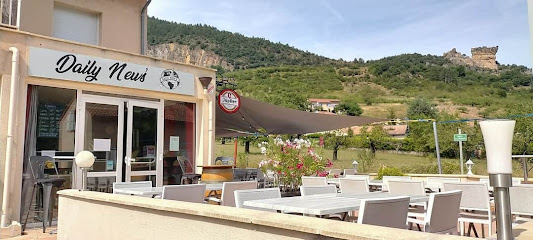
Bar de la digue
Discover the charm of Bar de la Digue, a scenic bar in Gorges du Tarn offering delightful drinks and stunning river views.
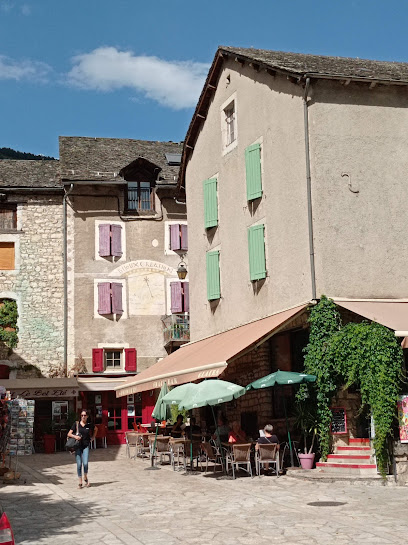
Local Phrases about Tarn Gorges
-
- HelloBonjour
[bohn-zhoor] - GoodbyeAu revoir
[oh ruh-vwahr] - YesOui
[wee] - NoNon
[nohn] - Please/You're welcomeS'il vous plaît/De rien
[seel voo pleh/duh ryehn] - Thank youMerci
[mehr-see] - Excuse me/SorryExcusez-moi/Désolé
[ehk-skyoo-zay mwah/dey-zoh-lay] - How are you?Comment ça va?
[koh-mohn sah vah?] - Fine. And you?Bien. Et vous?
[byen. ay voo] - Do you speak English?Parlez-vous anglais?
[par-lay voo ahn-glay] - I don't understandJe ne comprends pas
[zhuh nuh kohm-prahnd pah]
- HelloBonjour
-
- I'd like to see the menu, pleaseJe voudrais voir le menu, s'il vous plaît
[zhuh voo-dray vwar luh muh-nyoo, seel voo pleh] - I don't eat meatJe ne mange pas de viande
[zhuh nuh mahnzh pah duh vyand] - Cheers!Santé!
[sahn-tay] - I would like to pay, pleaseJe voudrais payer, s'il vous plaît
[zhuh voo-dray pay-ay, seel voo pleh]
- I'd like to see the menu, pleaseJe voudrais voir le menu, s'il vous plaît
-
- Help!Au secours!
[oh suh-koor] - Go away!Allez-vous en!
[ah-lay voo zah] - Call the Police!Appelez la police!
[ah-peh-lay lah poh-lees] - Call a doctor!Appelez un médecin!
[ah-peh-lay uh may-deh-sahn] - I'm lostJe suis perdu
[zhuh swee pair-doo] - I'm illJe suis malade
[zhuh swee mah-lahd]
- Help!Au secours!
-
- I'd like to buy...Je voudrais acheter...
[zhuh voo-dray zah-shtay...] - I'm just lookingJe regarde juste
[zhuh ruh-gahrd zhewst] - How much is it?Combien ça coûte?
[kohm-byen sah koot?] - That's too expensiveC'est trop cher
[say troh shehr] - Can you lower the price?Pouvez-vous baisser le prix?
[poo-vey voo bay-say luh pree?]
- I'd like to buy...Je voudrais acheter...
-
- What time is it?Quelle heure est-il?
[kehl uhr ay-teel?] - It's one o'clockIl est une heure
[eel ay eun uhr] - Half past (10)Dix heures et demie
[dees uhr ay duh-mee] - MorningMatin
[mah-tahn] - AfternoonAprès-midi
[ah-preh-mee-dee] - EveningSoir
[swahr] - YesterdayHier
[yehr] - TodayAujourd'hui
[oh-zhoor-dwee] - TomorrowDemain
[duh-mahn] - 1Un
[uhn] - 2Deux
[duh] - 3Trois
[trwah] - 4Quatre
[kah-truh] - 5Cinq
[sank] - 6Six
[sees] - 7Sept
[sept] - 8Huit
[weet] - 9Neuf
[nuff] - 10Dix
[dees]
- What time is it?Quelle heure est-il?
-
- Where's a/the...?Où est...?
[oo ay...?] - What's the address?Quelle est l'adresse?
[kehl ay lah-dress?] - Can you show me (on the map)?Pouvez-vous me montrer (sur la carte)?
[poo-vey voo muh mohn-tray (soor lah kart)?] - When's the next (bus)?Quand est le prochain (bus)?
[kahnd ay luh proh-shahn (boos)?] - A ticket (to ....)Un billet (pour ...)
[uhn bee-yay (poor ...)]
- Where's a/the...?Où est...?
History of Tarn Gorges
-
The Tarn Gorges were formed over millions of years through the erosive power of the Tarn River cutting through the limestone plateaus of the Grands Causses. This geological masterpiece has created one of the deepest and most spectacular canyons in Europe, featuring steep cliffs, unique rock formations, and dramatic landscapes.
-
Evidence of human presence in the Tarn Gorges dates back to prehistoric times. Various archaeological sites, including caves and rock shelters, have yielded tools, pottery, and other artifacts that highlight the region's ancient history. Notably, the Baumes Chaudes caves contain remnants of human activity from the Paleolithic era.
-
During the Roman period, the Tarn Gorges region was integrated into the Roman Empire. The Romans constructed roads, bridges, and settlements, leaving behind a legacy of engineering prowess. The Pont de Montvert and the remnants of Roman villas are testament to their influence in the area.
-
The Middle Ages saw the construction of numerous castles and fortresses within the Tarn Gorges. These structures served as defensive strongholds and residential palaces for local lords. Notable examples include the Château de Peyrelade and the Château de Saint-Rome, which offer glimpses into medieval life and warfare.
-
The Tarn Gorges are dotted with significant religious sites, including abbeys, chapels, and pilgrimage routes. The Abbey of Saint-Guilhem-le-Désert, a UNESCO World Heritage site, is a prime example of Romanesque architecture and an important stop on the Way of St. James pilgrimage route to Santiago de Compostela.
-
In the late 17th and early 18th centuries, the Tarn Gorges were a battleground for the Camisard Wars. Protestant Huguenots, known as Camisards, rebelled against Catholic King Louis XIV's persecution. The rugged terrain provided natural fortifications for the Camisards, who engaged in guerrilla warfare against royal troops.
-
The 20th century brought increased attention to the natural beauty of the Tarn Gorges, leading to the growth of tourism. Efforts have been made to balance tourism with conservation, ensuring the preservation of the region's unique landscapes and biodiversity. Today, the Tarn Gorges are a popular destination for outdoor activities like hiking, kayaking, and rock climbing.
Tarn Gorges Essentials
-
Tarn Gorges is located in the Occitanie region of southern France. The nearest major airport is Montpellier-Méditerranée Airport, approximately 150 kilometers away. From Montpellier, you can rent a car or use public transportation such as trains and buses to reach the town of Millau, which serves as a gateway to Tarn Gorges. Alternatively, you can fly into Rodez-Aveyron Airport, which is closer but has fewer international connections.
-
Transportation within Tarn Gorges includes a variety of options. Renting a car is highly recommended for the flexibility it offers in exploring the scenic routes and hidden gems of the gorges. Public buses and local trains connect the major towns, but services are infrequent. Taxis are available but can be costly for longer trips. For the more adventurous, cycling and hiking are popular ways to experience the natural beauty of the area.
-
The official currency in France is the Euro (EUR). Credit cards are widely accepted in hotels, restaurants, and shops, but it is advisable to carry some cash, especially for smaller establishments and in rural areas. ATMs are available in the larger towns like Millau, but not in the more remote areas, so plan accordingly.
-
Tarn Gorges is generally a safe destination for tourists. However, it is always wise to take standard precautions such as avoiding isolated areas at night and keeping an eye on your belongings in crowded places. There are no specific high-crime areas targeting tourists, but staying vigilant and aware of your surroundings is always advisable.
-
In case of emergency, dial 112 for immediate assistance. The local police station and medical facilities are available in Millau. It is recommended to have travel insurance that covers medical emergencies. For minor health issues, pharmacies are readily available in the larger towns, where you can purchase over-the-counter medications.
-
Fashion: Do dress comfortably and practically, especially if you plan to engage in outdoor activities. Avoid overly casual attire in fine dining establishments. Religion: Do respect local customs and traditions. Be mindful when visiting churches and historical sites. Public Transport: Do be respectful and give up your seat to elderly passengers. Don’t eat or drink on public transport. Greetings: Do greet people with a handshake. A friendly 'Bonjour' goes a long way. Eating & Drinking: Do try local delicacies like Roquefort cheese and regional wines. Don’t refuse hospitality, as it is considered impolite.
-
To experience Tarn Gorges like a local, visit the local markets where you can buy fresh produce and traditional French goods. Engage with locals, as they are often friendly and willing to share stories about the area's history and culture. Don’t miss visiting the Millau Viaduct, the tallest bridge in the world, and taking a boat trip along the Tarn River for unique perspectives of the gorges.
Trending Landmarks in Tarn Gorges
-
Arc de Triomphe
-
Parc naturel régional des Grands Causses
-
Verdon Gorge
-
Viaduc de Millau
-
Sublime Point
-
Najac Castle
-
Abîme de Bramabiau
-
The Boatmen of the Gorges du Tarn
-
Gorges Du Verdon
-
Pas de Soucy
-
Le Moulin de Cénaret
-
Les Gorges du Tarn .fr
-
Gorges du Tarn
-
Point sublime de Saint-Jean des Balmes, 12720 Veyreau
-
Le Tarnon
Nearby Cities to Tarn Gorges
-
Things To Do in Nîmes
-
Things To Do in Avignon
-
Things To Do in Toulouse
-
Things To Do in Aix-en-Provence
-
Things To Do in Marseille
-
Things To Do in Lyon
-
Things To Do in Soldeu
-
Things To Do in Pas de la Casa
-
Things To Do in Grenoble
-
Things To Do in El Serrat
-
Things To Do in Ordino
-
Things To Do in Canillo
-
Things To Do in Encamp
-
Things To Do in Arinsal
-
Things To Do in La Massana













